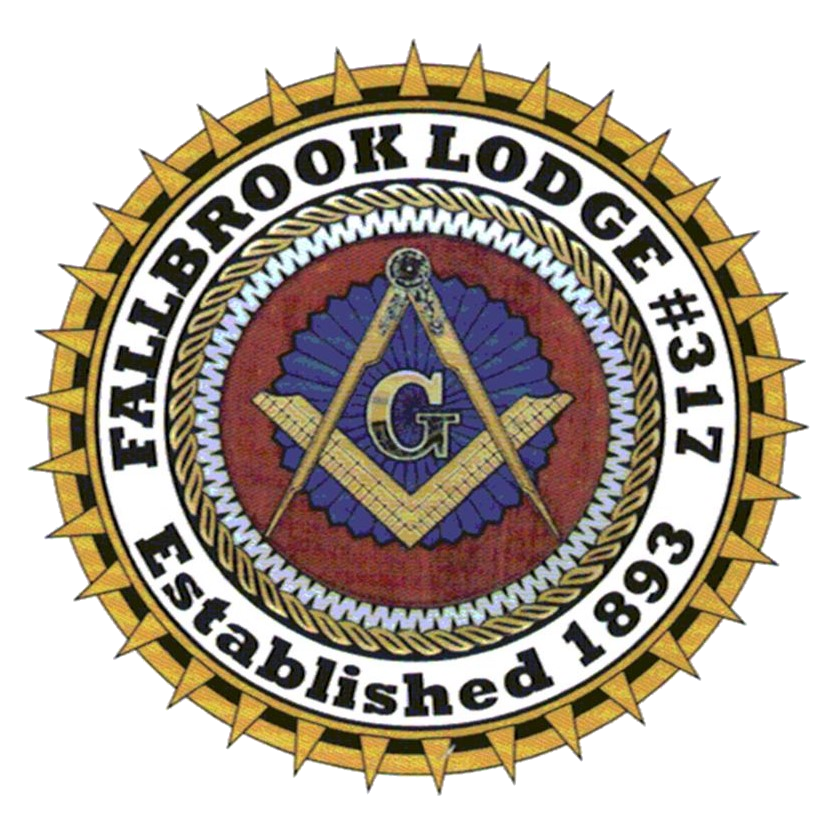WHAT IS FREEMASONRY?
Freemasonry (or Masonry) is dedicated to the Brotherhood of Man under the Fatherhood of God. It uses the tools and implements of ancient architectural craftsmen symbolically in a system of instruction designed to build character and moral values in its members.
Its singular purpose is to make good men better. Its bonds of friendship, compassion, and brotherly love have survived even the most divisive political, military, and religious conflicts through the centuries.
Freemasonry is a fraternity which encourages its members to practice the faith of their personal acceptance. Masonry teaches that each person, through self-improvement & helping others, has an obligation to make a difference for good in the world.
WHO ARE THE FREEMASONS?
Masons belong to the oldest and largest fraternal organization in the world. Today, there are more than 60 thousand Freemasons in California.
Masons represent virtually every occupation and profession, yet within the Fraternity, all meet as equals. Masons come from diverse political ideologies, yet meet as friends. Masons come from varied religious beliefs and creeds, yet all believe in one God.
Many of the United State’s early patriots were Freemasons. Thirteen signers of the Constitution and fourteen Presidents of the United States, including George Washington, were Masons. In Canada, the Father of the Confederation, Sir John A. MacDonald, was a Mason, as were other early Canadian and American leaders.
One of the most fascinating aspects of Freemasonry is how so many men, from so many different walks of life, can meet together in peace, always conducting their affairs in harmony and friendship and calling each other “Brother.”
WHAT DO FREEMASONS DO?
The Masonic experience encourages members to become better men, better husbands, better fathers, and better citizens. The fraternal bonds formed in the Lodge help build lifelong friendships among men with similar goals and values. Beyond its focus on individual development and growth, Masonry is deeply involved in helping people.
The Freemasons contribute over two million dollars a day to charitable causes. This philanthropy represents an unparalleled example of the humanitarian commitment of this great and honorable Fraternity. Much of that assistance goes to people who are not Masons. Some of these charities are vast projects. The Shrine Masons (Shriners) operate the largest network of hospitals for burned and orthopedically impaired children in the country, and there is never a fee for treatment.
Many other Masonic organizations sponsor a variety of philanthropies, including scholarship programs for children, and perform public service activities in their communities. Masons also enjoy the fellowship of each other and their families in social and recreational activities.
FREEMASONRY IN CALIFORNIA.
Membership in California Masonry is growing and getting younger. The fastest growing segment of our membership is 18-30 year olds. About 2,000 men are initiated each year; their average age is 39.
The mission of Fallbrook Masonic Lodge, to foster personal growth and improve the lives of others, is carried out through Masonic principles and tradition.
Our foundation is guided by the enduring and relevant principles of our fraternity:
Brotherly love. We value respect, freedom, kindness, tolerance, and our differences – religious, ethnic, cultural, social, generational, and educational – and strive for harmony in our individual lives, in our lodges, and in the global community.
Relief. We take responsibility for the well-being of our brothers, our families, and the community as a whole. We provide relief through philanthropy, community involvement, and delivery of excellent care.
Truth. We stay true to our personal code of conduct and ethics – honor, integrity, personal responsibility, and the continuous pursuit of knowledge.
The satisfaction of being part of a centuries-old fraternity whose traditions and core values are relevant today, and will endure for centuries to come, is important to Fallbrook Masons.
